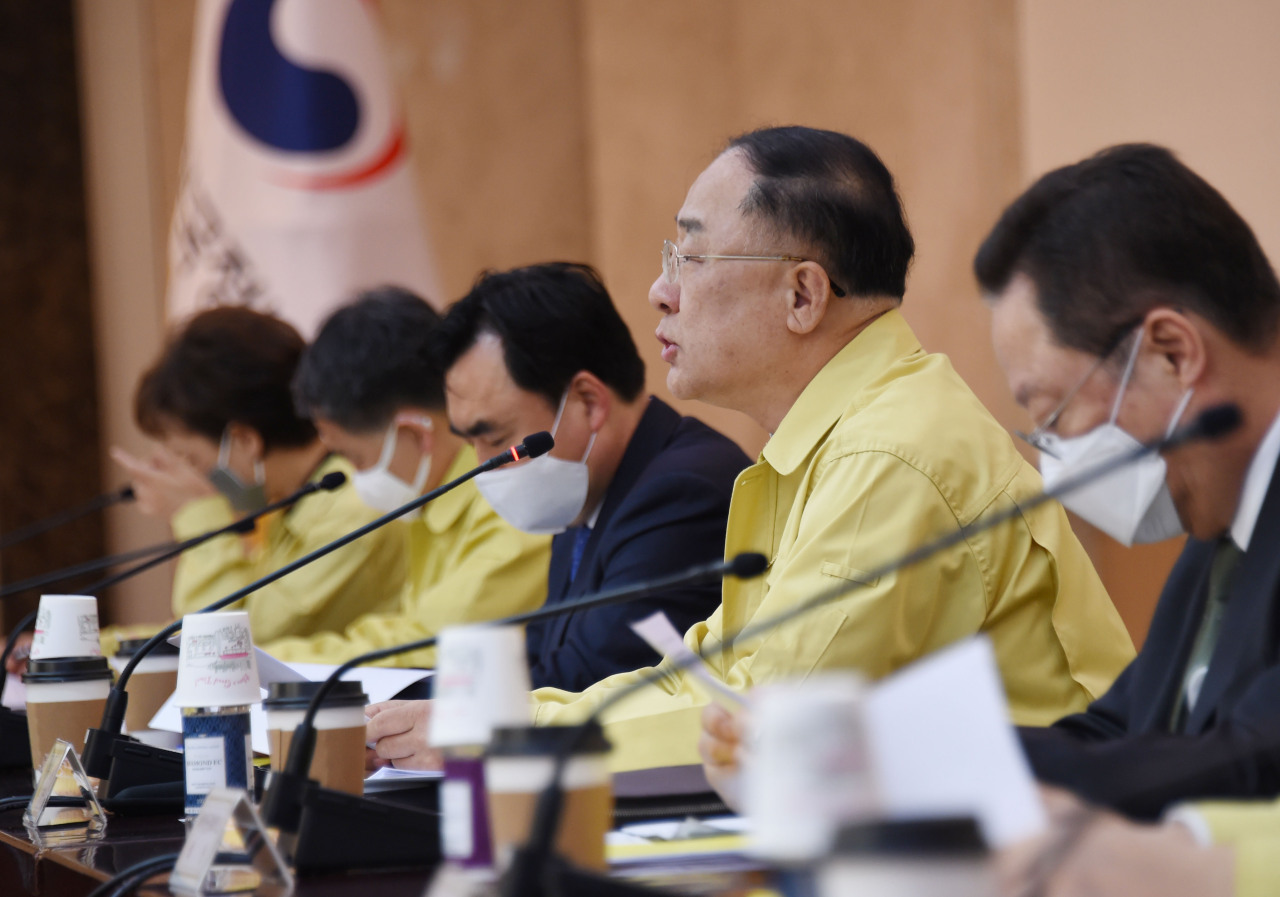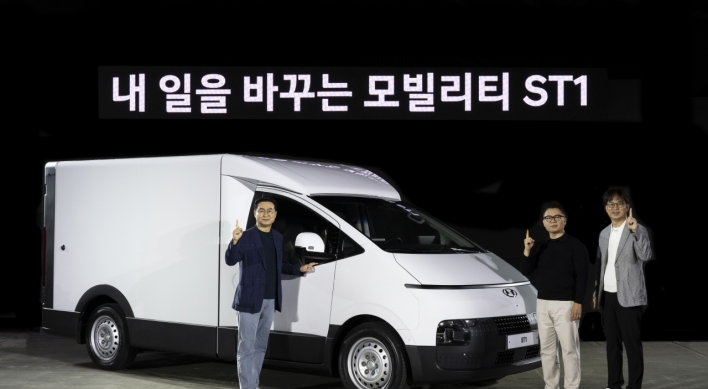S. Korea to lend extra W10tr to cash-strapped small businesses
Government hurriedly takes follow-up fiscal measures after initial program’s bottleneck
By Bae HyunjungPublished : April 29, 2020 - 17:52

South Korea will kick off an emergency loan program worth 10 trillion won ($8.2 billion) in May, allowing novel coronavirus-hit small-business owners to borrow up to 10 million won from six commercial banks here, according to the nation’s chief fiscal policymaker.
The action comes in the wake of an earlier lending program that had caused a major bottleneck due to the limited range of loan screening channels despite skyrocketing borrowing demand.
“(The government) has designed a second financial support program for small-business operators and will make that process start within May,” Deputy Prime Minister and Finance Minister Hong Nam-ki said Monday in an emergency economy central headquarters meeting.
Loan applications will be accepted starting May 18, according to the Ministry of Economy and Finance.
As the COVID-19 pandemic is having a severe impact on the real economy, consumer sentiment and employment, it is crucial that authorities take “powerful economic quarantine measures” to respond to the uncertainties, according to the fiscal chief.
After seeing its new coronavirus infection curve shoot up in late February, Korea hurriedly drafted an urgent low-rate loan program for struggling owner-operators in March. The budget was soon increased to 16.4 trillion won, up 4.4 trillion won from the initial amount.
The much-needed program, however, also triggered considerable market confusion due to the limited channels and complicated process.
Though the program involved 14 commercial banks and the state-run Industrial Bank of Korea, most retailers rushed to the Small Enterprise and Market Service, which was relatively lenient toward those with low credit ratings.
Also, there were complaints that the number of required documents was excessive. This was eventually reduced to four from the initial 13.
In some local SEMAS centers, desperate cash-strapped business owners lined up for hours -- all night long at times -- to be accepted in the first-come, first-served system.
“We are deeply sorry that aspiring borrowers had to be turned away, without even the chance for a consultation or loan application,” Vice Finance Minister Kim Yong-beom said several times in March, vowing to alleviate the lending process.
The government’s upcoming secondary loan program will provide an easier procedure at an interest rate of 3-4 percent for medium credit holders within a 10 million won ceiling for individual borrowers, officials explained.
The amount is to be paid back in installments over a two- or three-year period, and those subject to the first loan program will be excluded in order to prevent overlapping payments.
“The purpose (of the additional lending program) is to provide financial support to as many end users as possible,” Hong said.
Bracing for an anticipated post-pandemic low-growth trend, Seoul’s government also reviewed the scenario of 65 deregulatory actions in the country’s 10 major growth engine industries, including data, artificial intelligence, mobility and medical technology.
The list includes a fast-track screening process for medical devices, eased rules for financial technology investments and shortened approval procedures for non-face-to-face services such as e-learning and telemedicine, which have come in handy amid quarantines.
By Bae Hyun-jung (tellme@heraldcorp.com)


![[Exclusive] Korean military set to ban iPhones over 'security' concerns](http://res.heraldm.com/phpwas/restmb_idxmake.php?idx=644&simg=/content/image/2024/04/23/20240423050599_0.jpg&u=20240423183955)
![[AtoZ into Korean mind] Humor in Korea: Navigating the line between what's funny and not](http://res.heraldm.com/phpwas/restmb_idxmake.php?idx=644&simg=/content/image/2024/04/22/20240422050642_0.jpg&u=)


![[Graphic News] 77% of young Koreans still financially dependent](http://res.heraldm.com/phpwas/restmb_idxmake.php?idx=644&simg=/content/image/2024/04/22/20240422050762_0.gif&u=)







![[LLG] Why this tutor teaches for free](http://res.heraldm.com/phpwas/restmb_idxmake.php?idx=652&simg=/content/image/2024/04/24/20240424050572_0.jpg&u=)



![[Today’s K-pop] Ateez confirms US tour details](http://res.heraldm.com/phpwas/restmb_idxmake.php?idx=642&simg=/content/image/2024/04/23/20240423050700_0.jpg&u=)